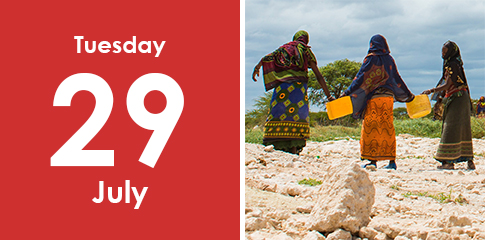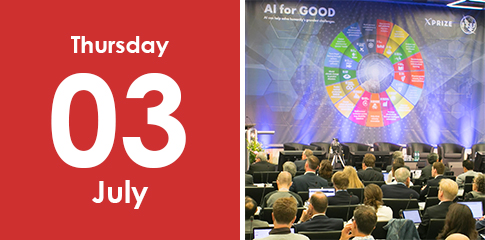International Intellectual Property is a branch of Intellectual Property Law and International Law that is governed by the intergovernmental organisation, the World Trade Organisation (WTO). The general objective of the WTO is to lower barriers to international trade and prevent a patent from becoming a monopoly right.
An important part of the WTO is the Council for TRIPS (the Agreement on Trade-Related Aspects of Intellectual Property Rights), which is the body that manages and discusses ongoing TRIPS issues. It covers a plethora of areas ranging from copyright, trademarks, patents, industrial designs, confidential information and the prevention of certain anti-competitive licensing practices.
Two articles of TRIPS, Articles 31 and 31bis, pose fundamental problems which were particularly highlighted by the COVID-19 crisis and which South Africa and India denounced in 2020. I will explain why and propose an amendment through a new article.
The Negative Consequences of Art. 31 and 31bis
The purpose of Articles 31 and 31bis, in a nutshell, is a tool to obtain a compulsory licence, which when used, allows a member to manufacture a patented product and removes the legal requirement (under IP law) to recognise exclusive patents rights before a patent owner’s period has expired. In the case of COVID, which concerns access to life saving medicines, the theory would be that Articles 31 and 31bis would able to prevent a patent from becoming a monopoly right. However, when countries such as South Africa and India submitted a case to the WTO in 2020, confirming that their death toll was rising and the specific conditions of Articles 31 and 31bis were not workable, hence their request for a blanket waiver, their attempts were unanimously blocked, leaving them without any patent privileges during the current pandemic. The counter-argument from developed countries, including the UK, US and Switzerland, was that Articles 31 and 31bis provided a pathway, so it was not necessary to request a blanket waiver. As a direct result of denying developing countries the dignity that they deserve, our global economy was subsequently confronted with the Indian variant of the coronavirus and the more recent Omicron detected in South Africa.
Consequently to patent monopolies, in the case of COVID, there is an unequal distribution and price segmentation of vaccines, which results in the vast majority of developing countries not having access until 2023 and 2024. The WTO’s trading instruments have created a playing field that is clearly imbalanced and when developed countries negotiate with developing countries such as South Africa and India, they see poverty and crisis. Whereas poverty should be an opportunity for investment, not exploitation.
Another negative ramification of inequality can be seen within agriculture and small holder farmers in Africa supported by East-West Seeds¹, who confirmed to me that there are huge barriers to growth due to the imbalances of trade negotiations via the TRIPS agreement. These barriers are spread across the value chain, from production to markets, poor access to input and machinery, training and extension, finance, information and restrictive regulatory frameworks. The former Minister of Agriculture in Nigeria, Mr Ogbeh also confirmed that Nigeria is a country so heavily reliant on substandard trade deals and imports that the majority of graduates are left without jobs². The imbalances in bilateral trade between developing and developed nations is becoming an elaborate joke that ceases to be funny, because inequality and greed is not the way in which we should trade using the TRIPS agreement, especially during a pandemic that affects the global economy and to date has killed millions of people.
By contrast to Africa, a developed nation, the United Kingdom, must also trade under the WTO rules. Whilst the United Kingdom might appear to be a developed country with a flexible unwritten constitution, that can quickly enact new legislations, it is in the midst of a significant recession. Prior to the recession, the United Kingdom had viable industries from agriculture, mining³, energy, health and manufacturing however today most of these industries are struggling. According to Sir Richard Sykes end of year government report pertaining to the ‘UK Vaccine Taskforce 2020 Achievements’, the United Kingdom invested vast sums directly to the vaccine R+D for pharmaceutical companies such as Moderna and AstraZeneca. Secondly, additional investment up to £548 million was spent on helping to develop the COVAX facility.
A law reform: Article 31v
Understanding the history, logic and legal principles of international intellectual property can help lay the groundwork for changing the situation we find ourselves in today. A developing country should not be seen as an opportunity for exploitation, but rather as a living legal entity that deserves dignity, freedom and financial independence. Africa, for example, would benefit greatly from balanced bilateral trade agreements that could enable it to build a sustainable continental common market by 2030. This timeframe is not unrealistic since Africa is rich in land, uranium, manganese, gold, copper, gas and a plethora of natural resources that the world needs.
It is nevertheless true that we cannot survive if we do not reconstruct our international trading instruments. The purpose of Art. 31v is to introduce mandatory principles of transparency and equality. Here is an example of my law reform proposal, Article 31v, that should be read alongside Article 31 with Article 31bis. Given that a word or term may have more than one meaning in law, the principles within my proposal are not to be followed in a holistic fashion. The primary rule is that the words used must be interpreted according to their exact meaning and context.
Patent suspension and full disclosure would be mandatory, where the judges consider it fair, just and proportionate having regard to the rights and privileges of the relevant country/member state. The prices would be set by the courts based on unbiased information provided by government representatives to ensure that the pricing is affordable and resolution tallies with the country’s actual needs. Implementation by the courts would be relatively simple as opposed to a unanimous decision as it exists today, which can be influenced by lobbies. Article 31v would have the effect of reviving our dying economy. This change could also benefit developed countries such as the UK in a number of ways from becoming less reliant on loans from the International Monetary Fund (IMF), available recourses to create jobs for 591,000 unemployed young people⁴ and purchase lifesaving medicines at a more reasonable price thus allowing developing countries to also have equal access in a timely manner.
Some argue that a law reform to Articles 31 and 31bis would remove the viable incentives that intellectual property rights create. My counter-argument would be: what financial risk did pharmaceutical companies like Moderna really take? The answer is, precisely none! Firstly, the funds for their research and development came from the public purse, secondly, the markets had already been provided to them, and thirdly, Moderna made a significant return on its investments.
Moreover, if viable incentives, i.e. substandard bilateral trade deals, patent monopolies and bulk purchases, is at the cost of millions of lives, greed must surely have implications not only for the present, but also for the theory of a rapid post-covid economic recovery.
Conclusion: A spectrum of hope
In the case of globalisation, it is in everybody’s interest that we do not have dying economies. It is inequitable that companies can manipulate patent laws to deny countries the dignity that they deserve and charge governments unreasonable prices for medicines whose development was funded by governments themselves⁵. The imbalanced trading playing field is not sustainable, and casts doubt on the moral view that perhaps the WTO’s duty of unity is intrinsically disconnected. Without a law reform, more economies will suffer the long-term impacts of WTO not representing the governments people, losing our global economy up to 9.2 trillion USD⁶ and with half of that cost falling on developed countries. Article 31v therefore clearly offers the right approach. Why is this so? Because the WTO and its members have a commitment to the public and the rule of law.
Vanessa Adeeko, Global Health’20
Vanessa has a degree in law and is an alumna of the Global Health Diplomacy, Trade and Intellectual Property Law course at the Graduate Institute Geneva. Views expressed are the authors own.
vanessaadeeko@icloud.com
¹ Rutger Groot and Hadiza Yaro’s comments from East-West Seed, pertaining to small holder farmers in West Africa.
² Figures for unemployment in Nigeria is at almost 14.2%. Data from the International Labour Organisation database.
³ The UK was once a global leader in coal production. However, according to Our World Data report, today coal production in the UK has fallen to zero. In the 1920 prior to the first great recession, the mining industry used to employ 1.9 million workers, however by 2019 the numbers dropped to 699 workers. 2000 times lower than the industry’s peak.
⁴ House of Commons Library, Number 5871, Andrew Powell, ‘Youth Unemployment Statistics’ (2021). Since the start of the pandemic there has been a large increase in unemployment in the UK.
⁵ Sir Richard Sykes, Chair of Royal Institution, ‘UK Vaccine Taskforce 2020 Achievements and Future Strategy’.
⁶ ICC Research Foundation, Cem Çakmaklı, ‘The Economic Case for Global Vaccinations: An Epidemiological Model with International Production Networks’.









Great Information. Thanks for Sharing.